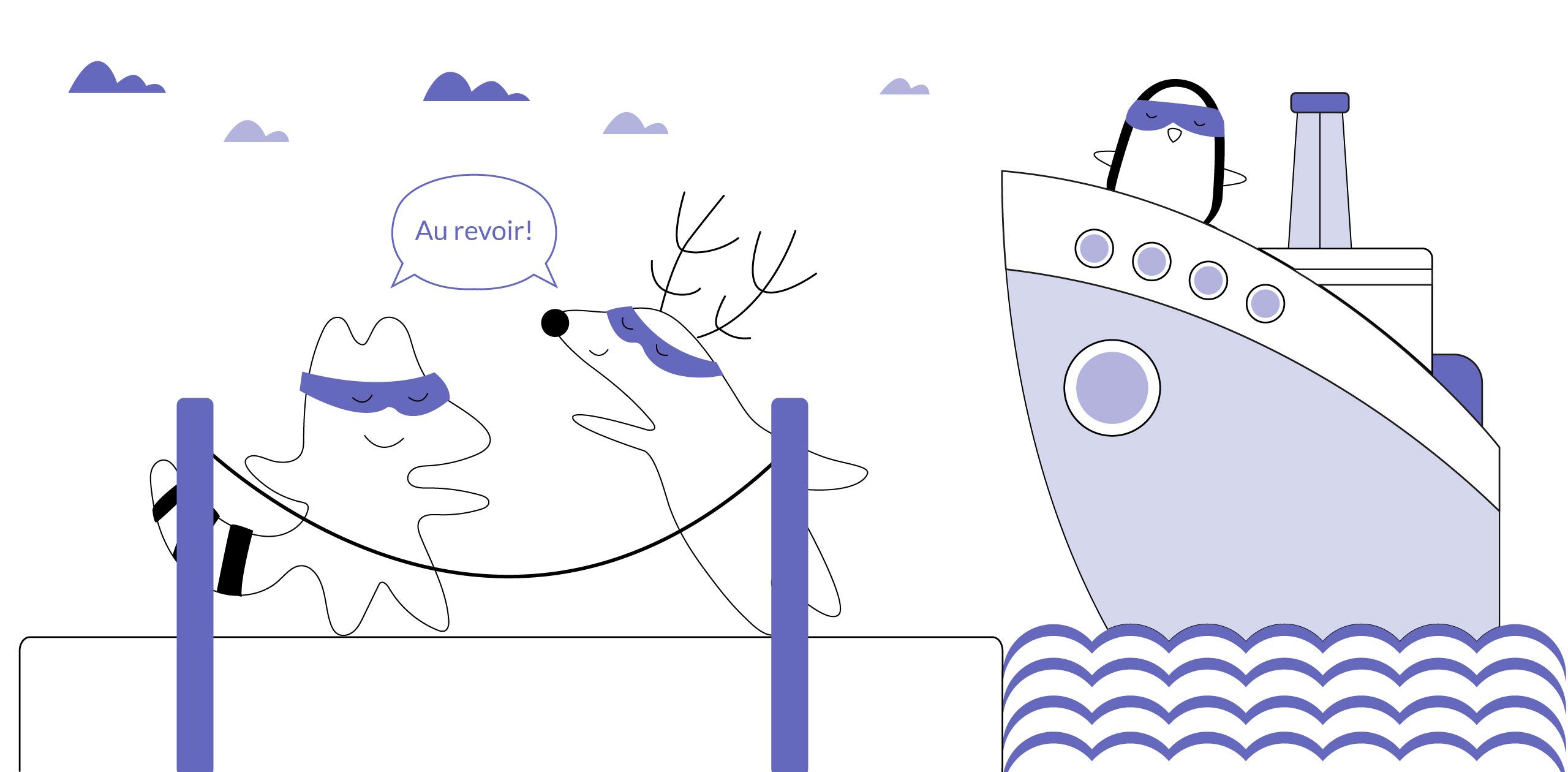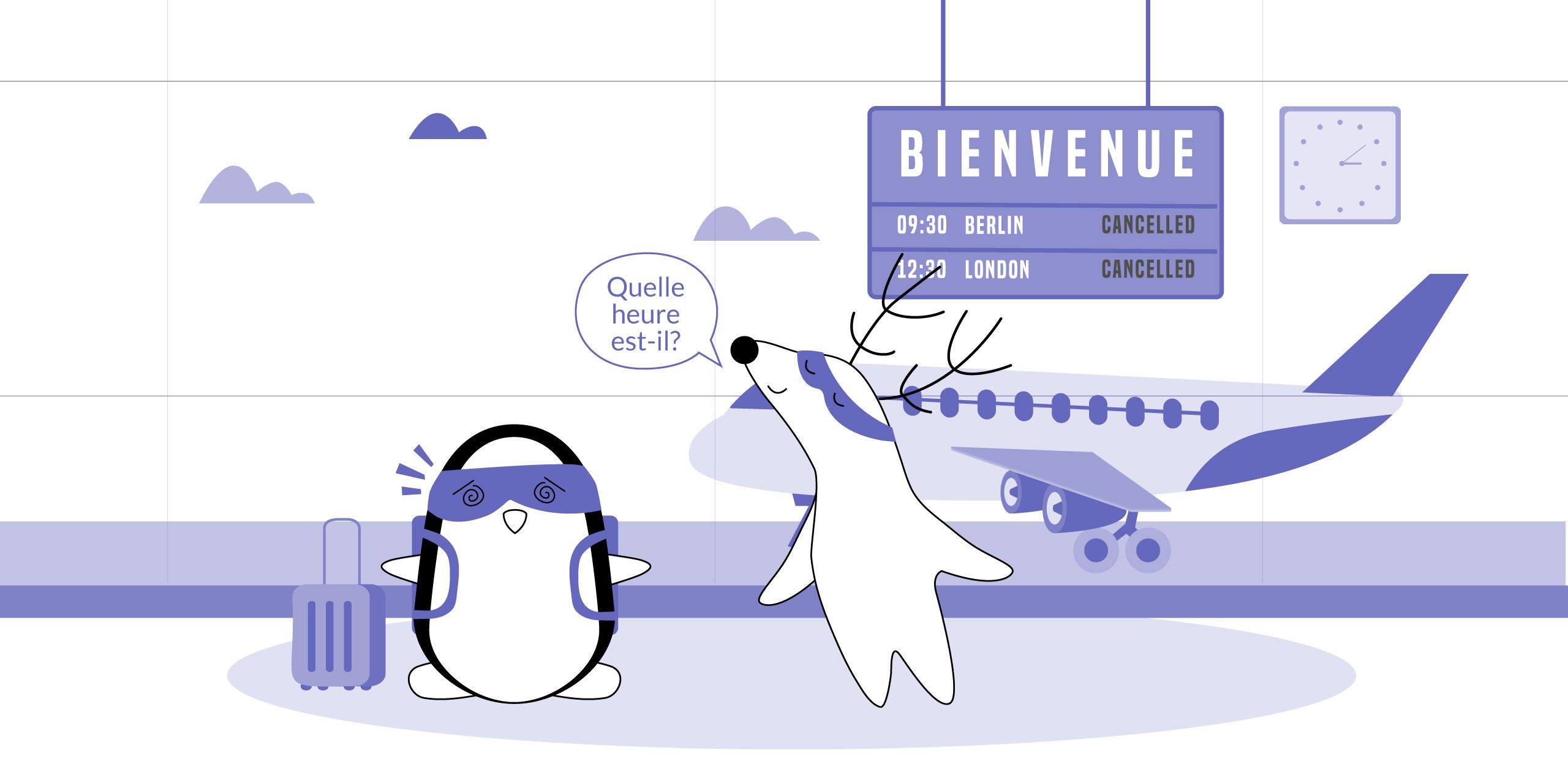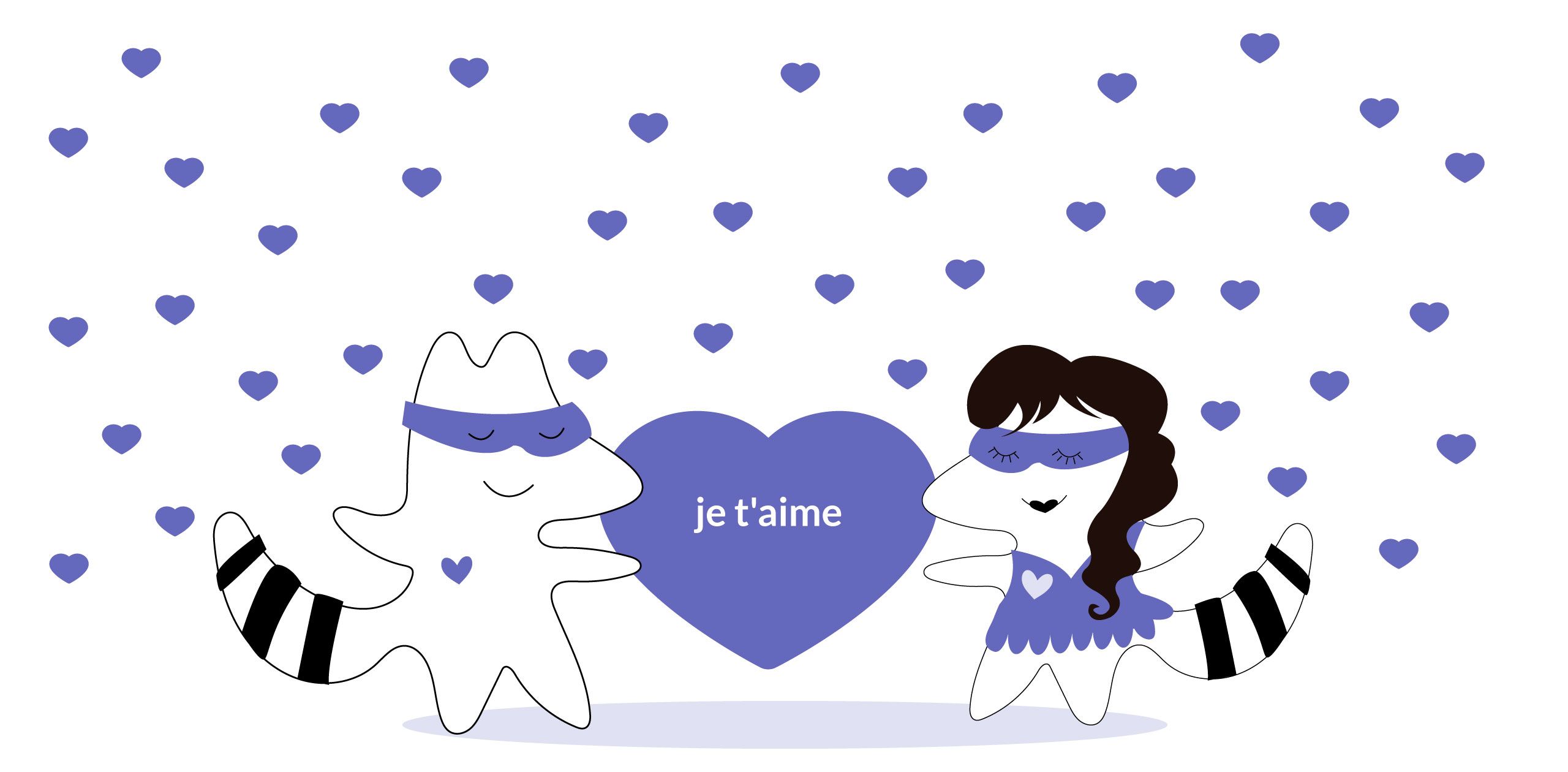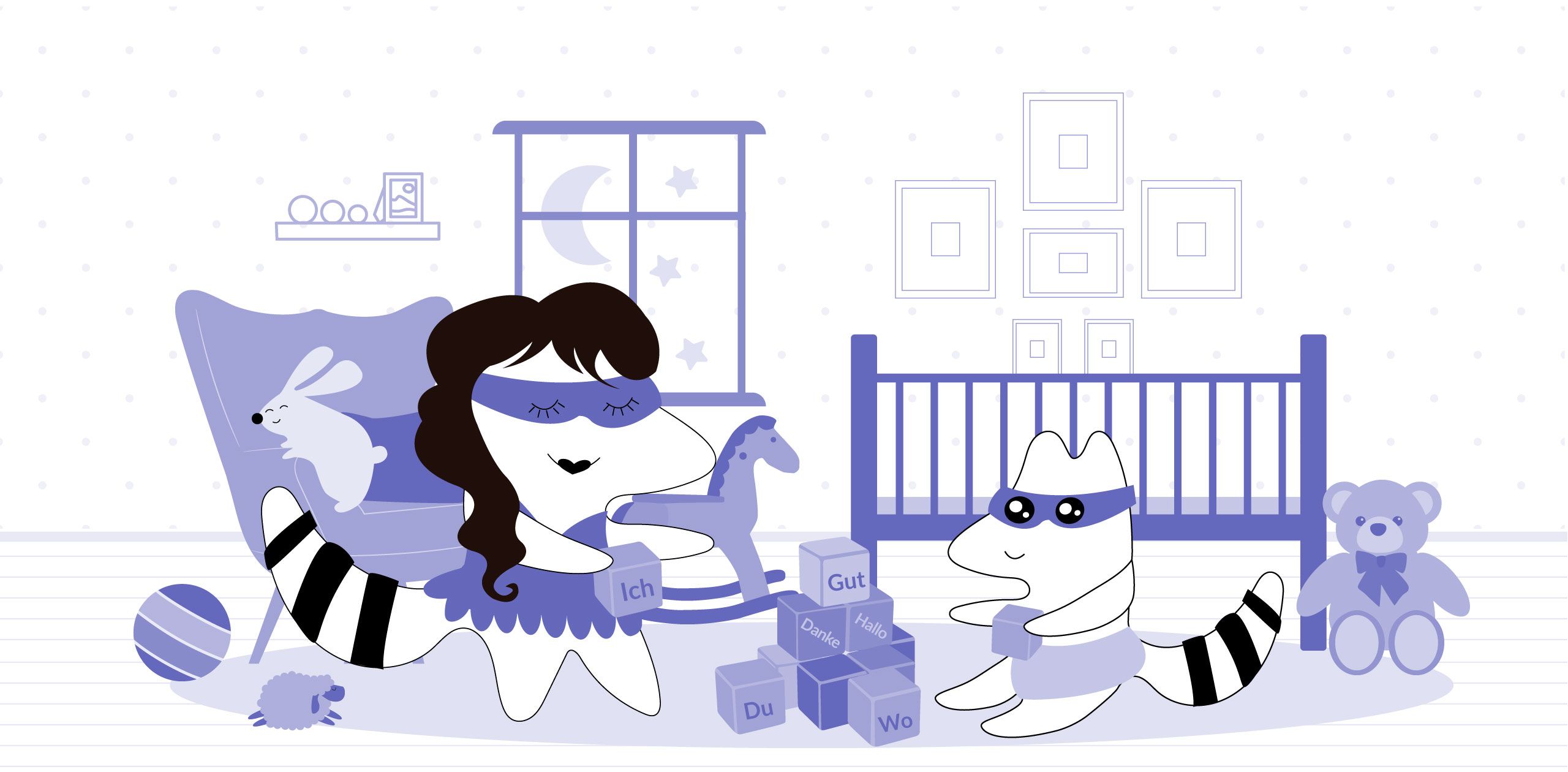
It’s never too early to start teaching your child a foreign language. In fact, the earlier you start, the better! And, what could be more fun than teaching your baby French? With just a few simple words and phrases, you can help get your child started on their linguistic journey.
In this article, we will provide a list of some of the most common French words related to everyday activities. We'll also share some tips for incorporating these into your life and making your kid's learning journey easy and fun. Read on to get started now.
Learn French with Langster
Basic French Words
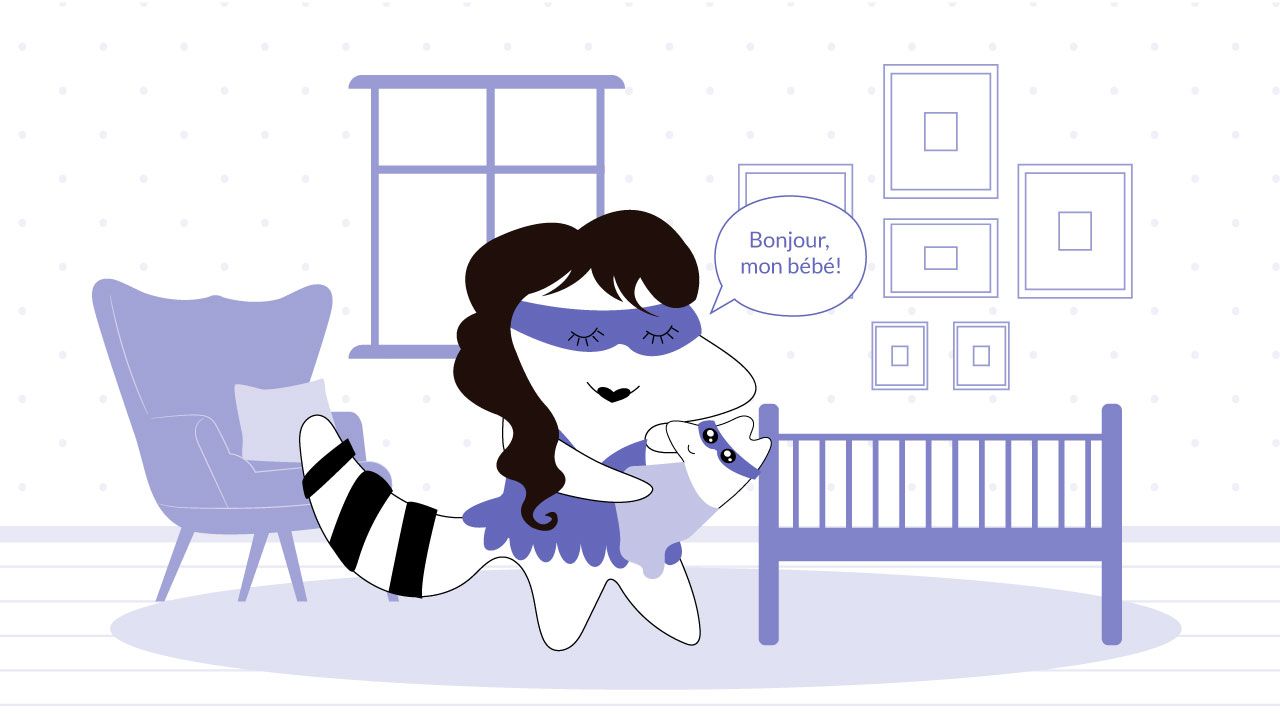
Basic French words are essential for any beginner. These are words that you will use frequently in everyday conversations, so it’s important that your child knows them well. Fortunately, these are simple and very easy to incorporate into our daily life.
Here is some basic French vocabulary to teach your little one:
French
English
Bonjour
Hello, Good morning
Salut
Hi
Ça va?
How are you?
Au revoir
Goodbye
Oui
Yes
Non
No
Merci
Thank you
Merci beaucoup
Thank you very much
Bien
Good
Fille
Girl
Garçon
Boy
Femme
Woman
Homme
Man
Mère
Mother
Père
Father
Français
French
S’il vous plaît
Please
Bonsoir
Good evening
Bonne Nuit
Good night
Excusez-moi
Excuse me
De Rien
You’re welcome (casual)
Je vous en prie
You’re welcome (formal)
Temps
Time
Jour
Day
Monsieur
Mister, Mr.
Madame
Madam, Mrs.
Voici
Here is…
Je ne comprends pas
I don’t understand
J'ai besoin d'aide
I need help
Je ne sais pas
I don’t know
Il y a
There is
Colors
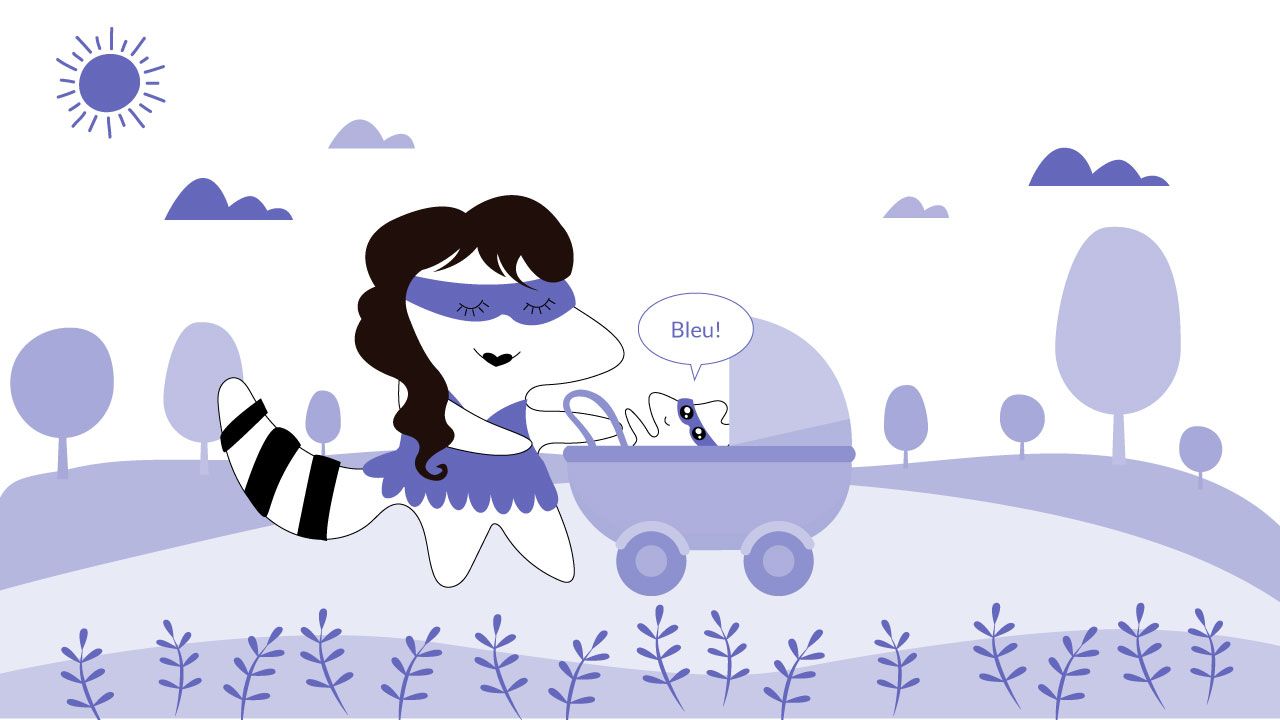
If you want your child to learn French, it’s important to expose them to simple, basic words that they can use in everyday activities. Another group of such words is colors – if your baby learns them, they can further use them when playing or drawing.
Here’s the list of basic colors in French. Remember that since these are adjectives, they need to agree in number and gender with the noun they modify, which means they change their endings. Below, we list both their masculine and feminine forms. Note that some of them have just one form.
French
English
Rouge
Red
Orange
Orange
Jaune
Yellow
Vert, verte
Green
Bleu, bleue
Blue
Violet, violete
Purple
Rose
Pink
Blanc, blanche
White
Gris, grise
Grey
Noir, noire
Black
Brun, brune
Brown
Doré, dorée
Gold
Argenté, argentée
Silver
Shapes
Another common group of words your kid will be exposed to when playing or learning is shapes. Here are their translations in French:
French
English
Un carré
Square
Un cercle
Circle
Un triangle
Triangle
Un rectangle
Rectangle
Un ovale
Oval
Un demi-cercle
Half circle
Une pyramide
Pyramid
Un cône
Cone
Un cube
Cube
Une boîte
Box
Un cœur
Heart
Une étoile
Star
Objects and Baby Words
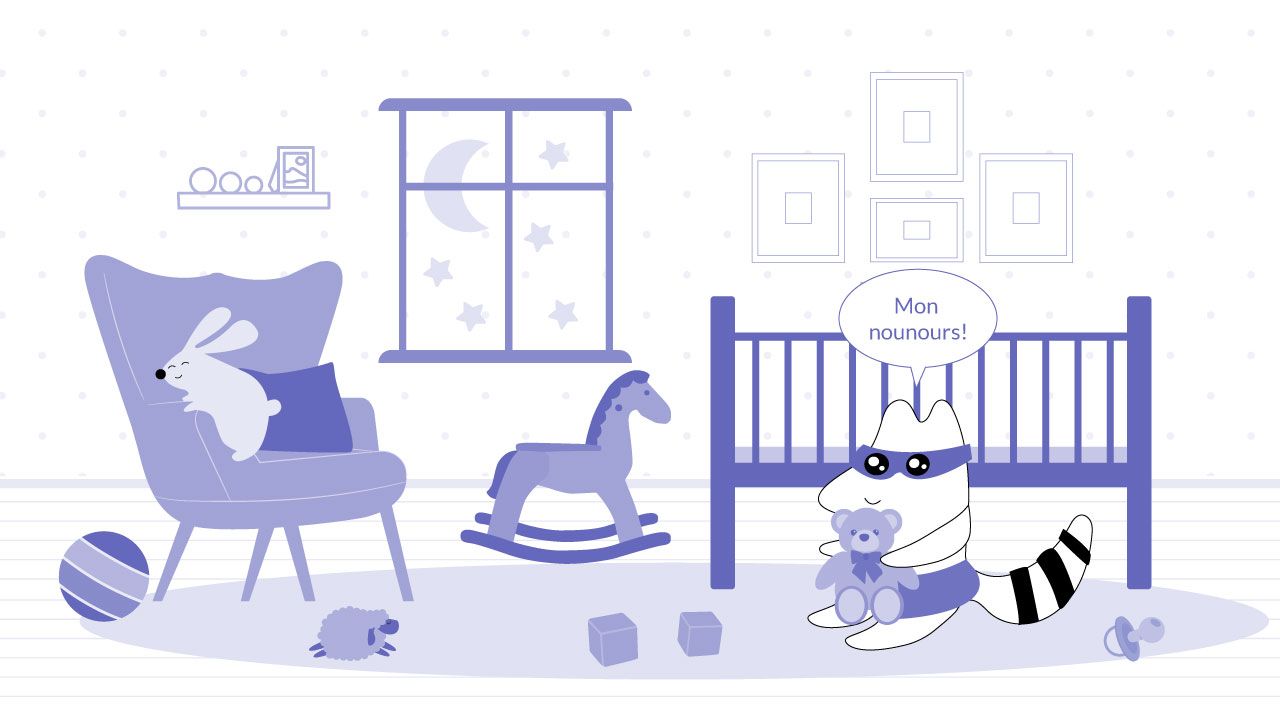
Finally, there are also some common objects that appear in almost every baby’s life. If you want your child to learn basic French words, these should definitely find their way into your kid’s vocabulary.
French
English
Le lolo, le lait
Milk (in baby talk and regular word)
Un nounours
Teddy bear (in baby talk)
Une poupée
Doll
Un doudou
Stuffed animal or blankie
Un joujou
Toy (in baby talk)
Un jouet de bain
Bath toy
Une balle
Ball
Un livre
Book
Les cubes
Blocks
Une comptine
Nursery rhyme
Un crayon (de couleur)
(Colored) pencil
La tétine, la sucette de bébé
Pacifier
Le bavoir
Bib
Un bibi (biberon)
Baby’s bottle
Un bol
Bowl
Une cuillerée
Spoon
Un biscuit
Cookie
Un toutou
Doggy (baby talk)
Un minou
Kitty (baby talk)
Un dada
Horsey (baby talk)
Un lapin
Bunny
Un oiseau
Bird
Une fleur
Flower
Une maison
House
Une voiture
Car
Un train
Train
Un camion
Truck
Un bateau
Boat
As you can see, these are very simple words, with some baby talk thrown in. These will be perfect to start your baby’s journey with the French language. And then, as they grow, you can move to more complex vocabulary and grammar.
Of course, this is just a small part of the vocabulary your child should know. If you want to learn more baby-related words, check out this article on our blog.
How to Incorporate French Words into Everyday Activities?
Teaching your children the French language may seem daunting at first, but with the right tools and methods, it can be easy and enjoyable for you both.
One of the best ways to do this is by exposing your kids to the language in everyday activities. This can be done in a number of ways – from playing games that focus on vocabulary to incorporating simple phrases into your conversations. Below are some ideas on how you can do this:
- When reading stories together, choose books that are written in French or have bilingual versions available.
- Sing French lullabies and children’s songs.
- Watch movies or cartoons that are dubbed in French (you can always use subtitles to boost comprehension if your kid reads well).
- Play word games or puzzles that focus on French phrases and words.
- Draw pictures together and label them with French words describing the objects pictured.
Apart from that, don't forget about other ways of learning French. You can always look for free French resources online (such as kids' exercise books, for example), or look into French classes for kids.
Of course, if you want to teach French to your children yourself, that is perfectly fine. But, if the process is getting too challenging or just tiresome, remember that there are professionals who can take care of that for you. You can also look for a children’s tutor (a native French speaker, for example) or look for a school with additional French classes.
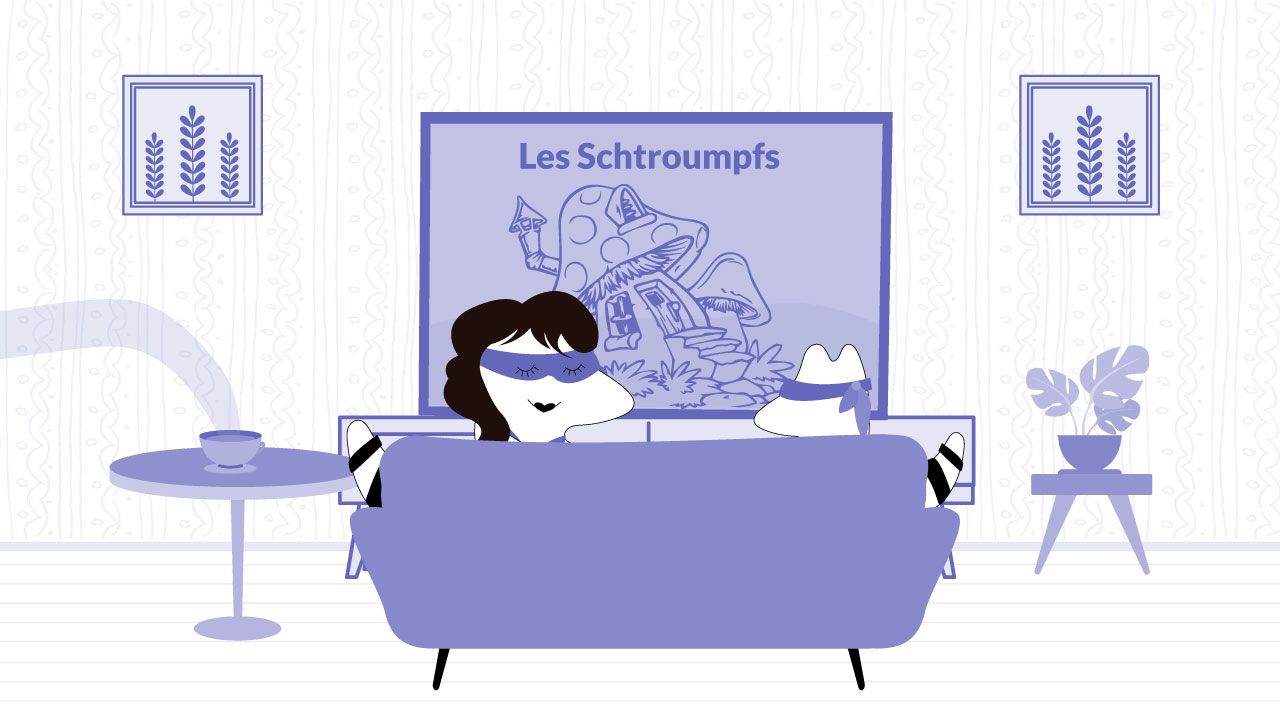
Bottom Line
Teaching your baby French can be easy and enjoyable, both for them and for you. You can start by exposing them to the language in everyday activities, such as through books, songs, movies, games, and drawings. They don’t need to memorize new words in bunches – instead, add basic vocabulary in French to your daily life, and see how your baby learns.
If you are having trouble figuring out a way to teach your kid a new language, remember that there are many free learning and teaching resources available online. You can also look into professional classes to ease the process, especially after your baby grows a little.
Regardless of what you want your kid to learn and how it is going, make sure to remember one thing: let your child experience their childhood. Make the learning process as fun as possible, and ensure that it’s enjoyable for your baby.







